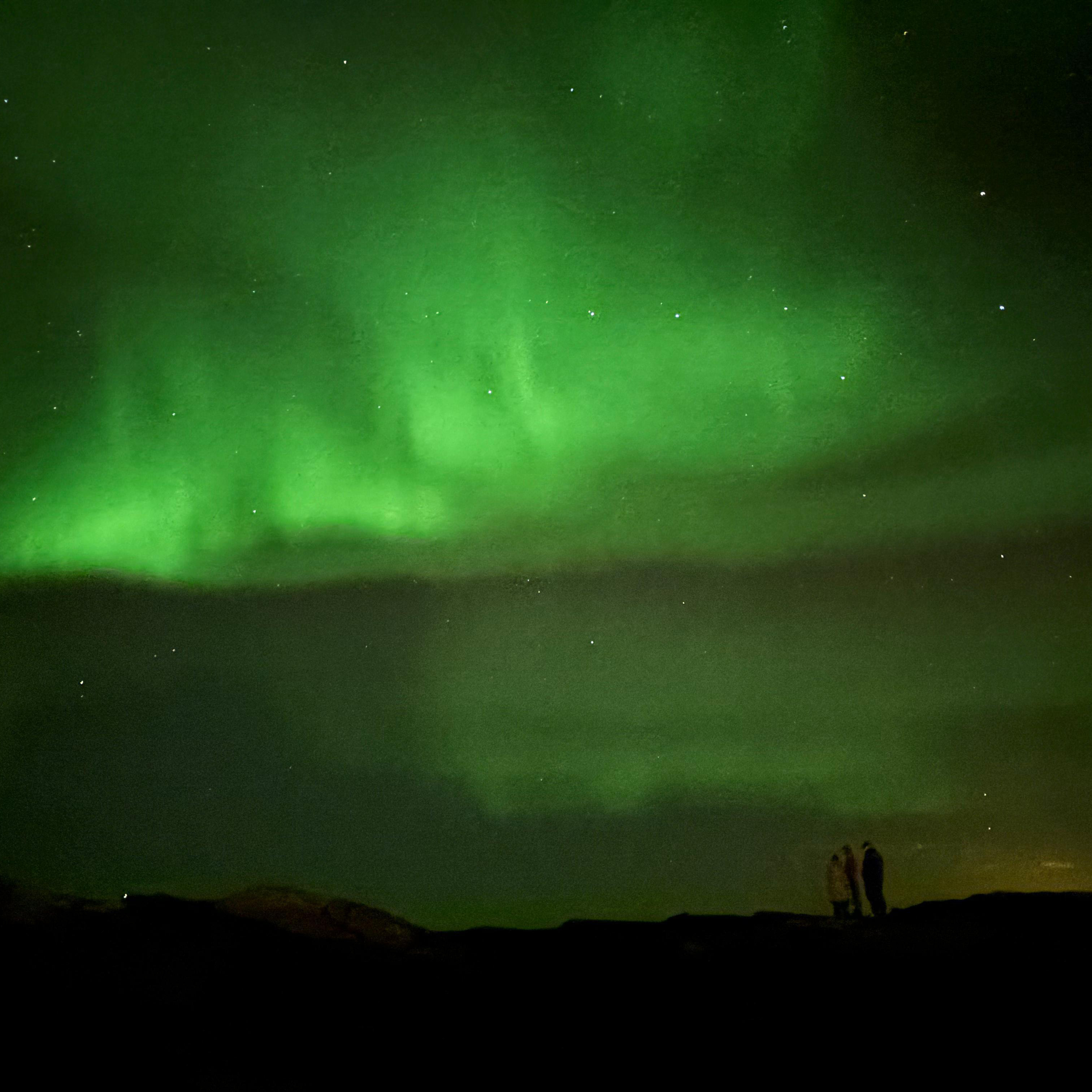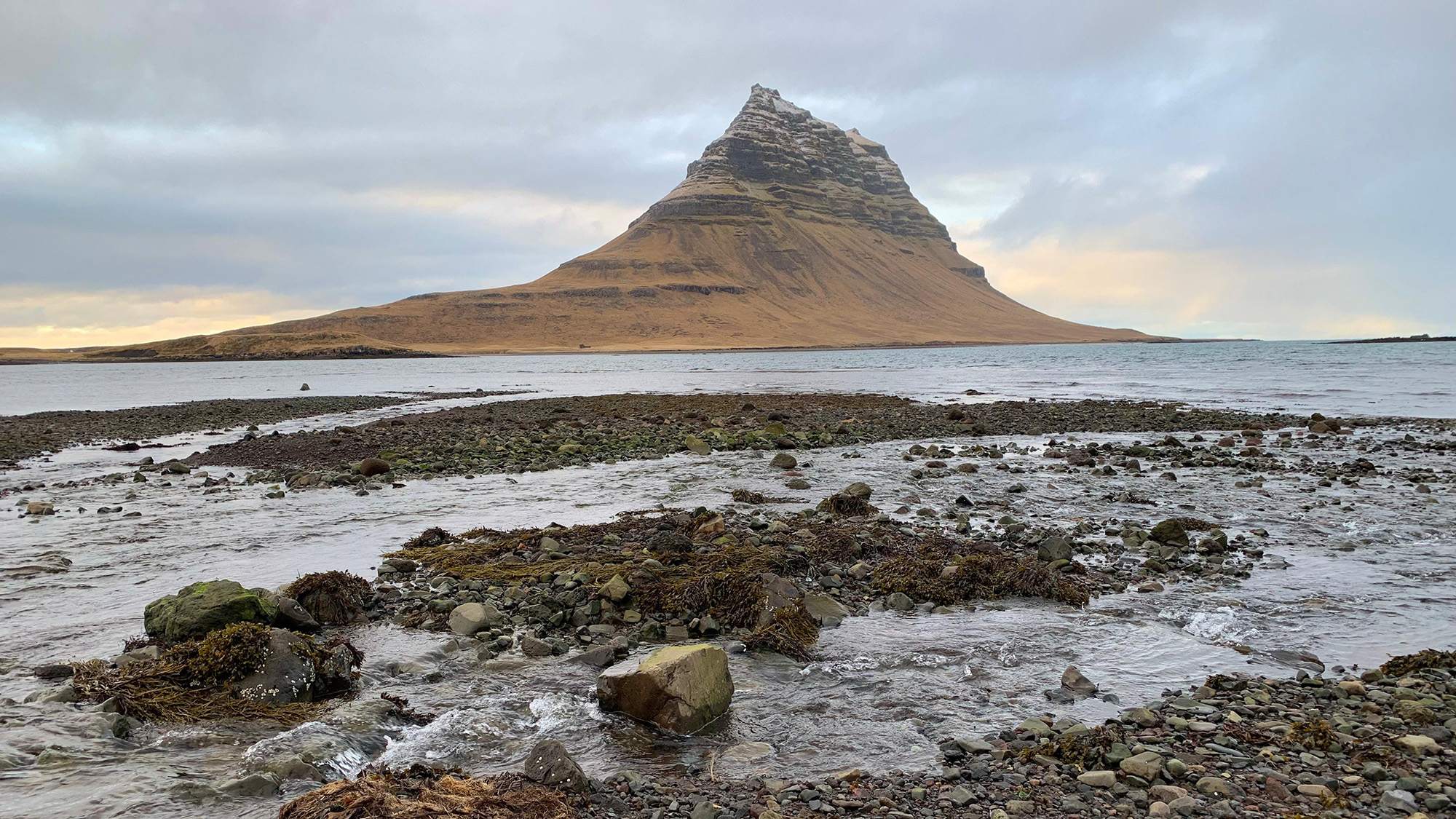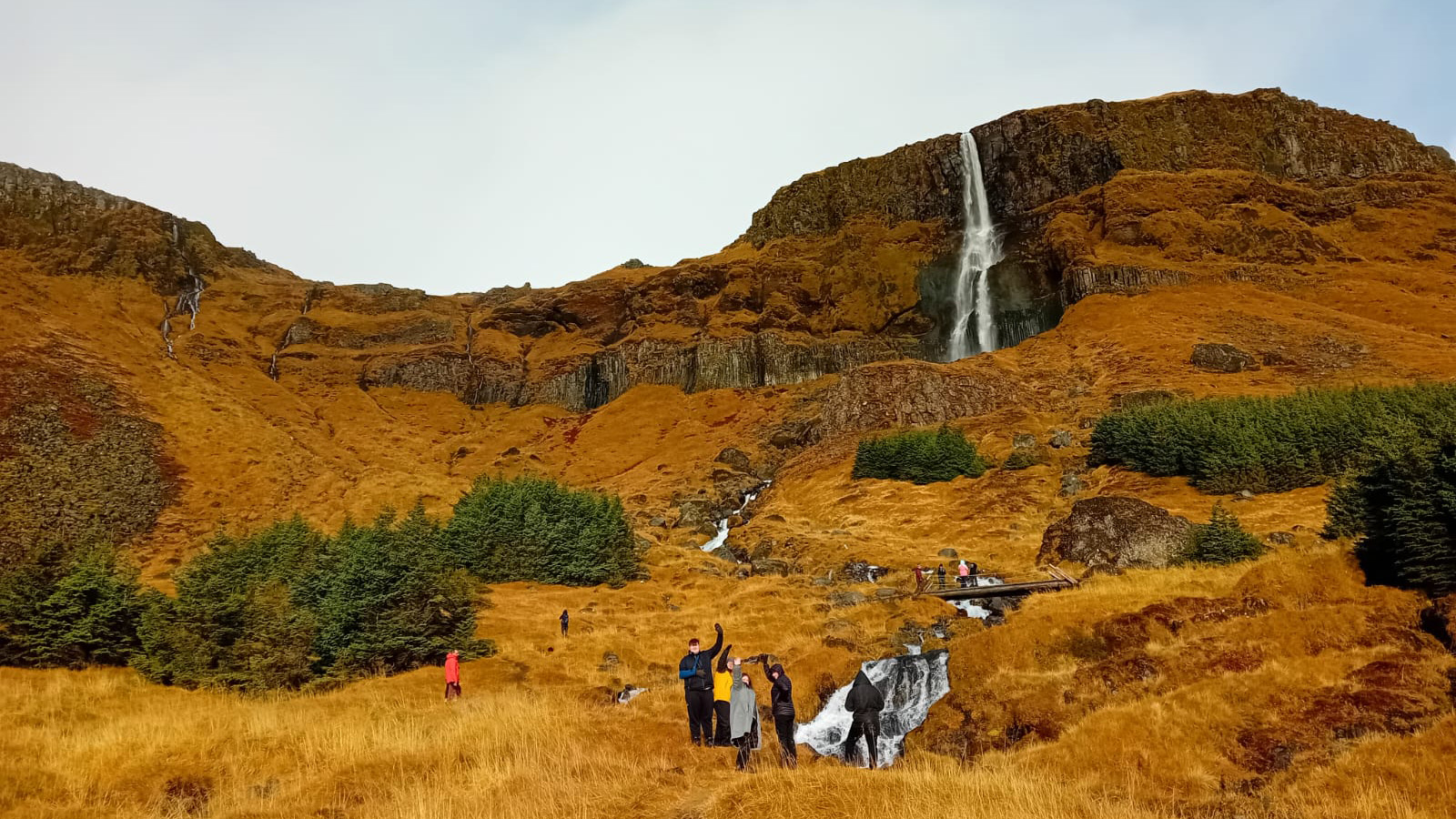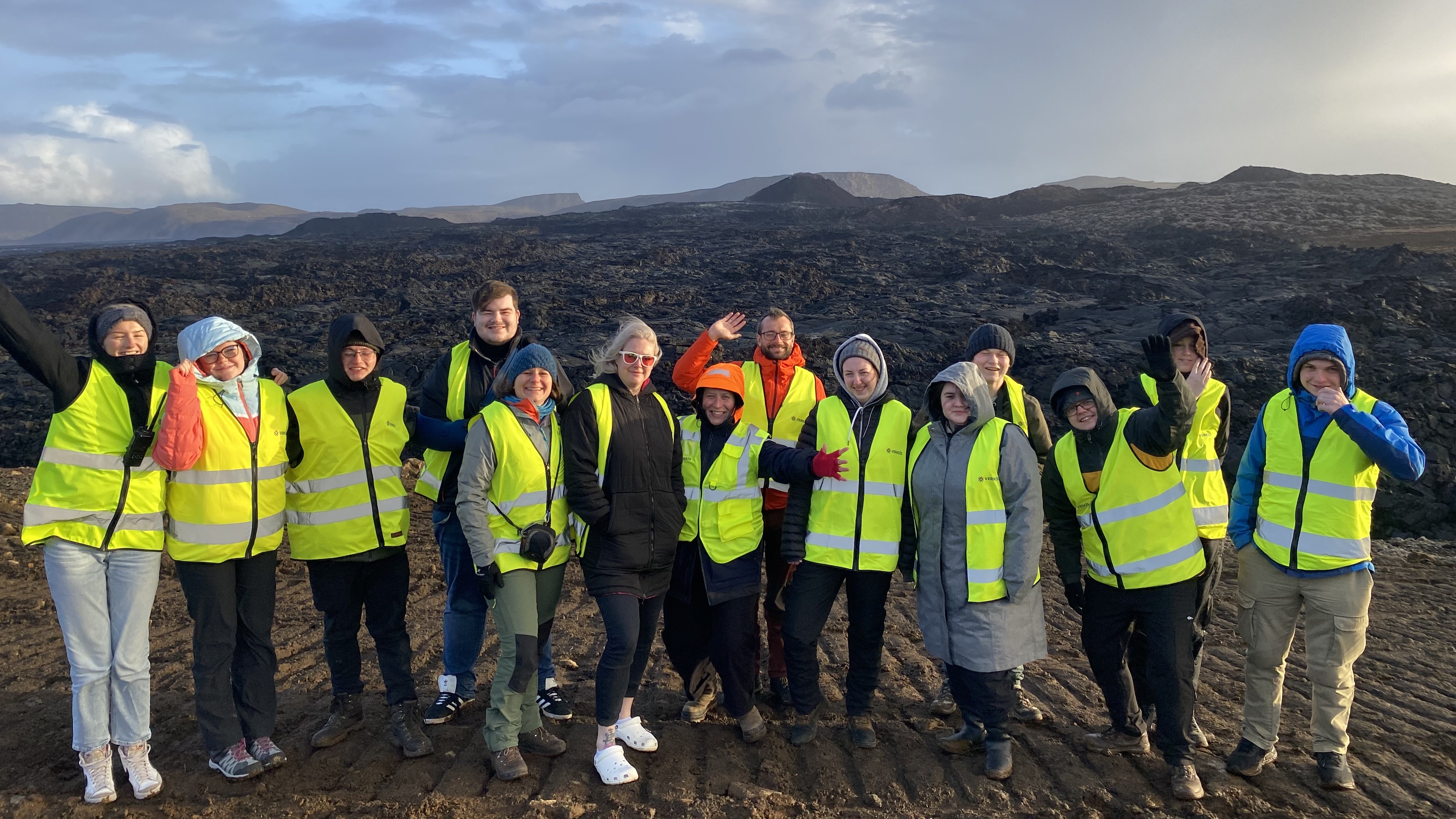UHI Inverness field trip to Iceland boosts international learning links
A UHI Inverness field trip to Iceland to visit restoration projects and geothermal landmarks has strengthened its ties with international academic partners and offered innovative learning opportunities to its students.
Twelve students on Geography, Environmental Science and Archaeology honours degree programmes travelled to Iceland with lecturer Karen Marshall and UHI’s Land and Marine Science Associate Dean and geologist Dr Audrey Decou.
The trip was held in partnership with the Agricultural University of Iceland as part of the module Sustainable Development Approaches in an International Context to highlight how places outside of Scotland work towards a sustainable future.
The group visited a riverbank protection project on one of Iceland's top salmon fishing rivers, a hydroelectric facility, Mýrar peatland in West Iceland, Krauma geothermal spa, the volcanic features of the Snæfellsnes peninsula and the volcanic eruption protections near the town of Grindavík.
Karen was inspired by the students’ openness to learning new ways of thinking during the week-long visit.
“I know we have wonderful students at UHI Inverness, but our field trip group blew me away,” she said.
“Their openness to the teaching and learning, creativity in discussions around sustainable development and rational sensemaking was exceptional. They inspired me with new perspectives and positivity for oftentimes complex and difficult topics.
“We had every season in our week: a winter wonderland of snow on arrival followed by wind, rain, and the most spectacular aurora borealis lightshow I have ever seen. I can’t thank our module partners enough; they embraced us into their field of expertise and enriched our curriculum with their knowledge and understanding. We hope to continue the relationships we have started to build through the module and look forward to what we can achieve in the future. I really felt it was an excellent field trip and a great enrichment to our teaching and learning portfolio.”

A highlight of the trip was a visit to the eruptions near the town of Grindavík, hosted by Verkís Consulting Engineers. Hörn Hrafnsdóttir, a Water Resources Engineer, gave the students an insight into her field of work protecting society and infrastructure from the destructive forces of volcanic eruptions.
Angus Doig, who studies Geography, said: “Going out to the lava fields around Grindavík, seeing the barriers and visiting the town itself was incredible. It showed how vulnerable the town really is, yet how the work Verkis is doing can make a huge difference to the town, its people and the infrastructure around it.”
The students were impressed by a talk by Christian Schultze, Director of International Relations and Research at the Agricultural University of Iceland. He spoke about the university and its place environmentally, economically and socially – sparking an interest in studying there in the future.
A visit to the Andakilsa River was hosted by Dr Hamish Moir, co-founder of cbec eco-engineering UK, who discussed nature-based catchment-scale river management being undertaken in the area. The students were told that an initial project implementing the first large wood bank protection scheme in Iceland led to follow-up work on sediment management and fish barrier easement at the upstream hydropower plant and then onto broader-scale catchment rewilding initiatives.
They also visited the Andakílsá Hydropower Station in Borgarfjördur to hear about the 8MW hydroelectric facility. Jón Örvar G Jónsson explained the history of the facility and its journey in preserving the Skorradalsvatn lake as a nature reserve and Andakílsá as a fishing river.

The group was invited to a fishing lodge to talk with local landowner Ragnhildur Helga Jónsdóttir, a member of the fishing board, about the area and its future. Jóhannes Guðbrandsson of HAFRO, the Marine and Freshwater Research Institute, delivered a presentation to the students about the salmonids and their role in the ecosystem and took them to the Mýrar peatland site of restoration interest.
The students also experienced electrofishing – a method of sampling fish population by immobilization using a weak electrical field. This part of the trip was supported by a successful bid to the United Kingdom – Iceland Arctic Science Partnership Scheme for the project ‘Strengthening ties – Exploring Collaborative Educational and Research Initiatives between Agricultural University of Iceland (AUI), the University of Highlands and Islands – UHI Inverness’.
Professor Bernd Hänfling, Director of the Institute for Biodiversity and Freshwater Conservation at UHI Inverness, prepared the students to think about the environmental DNA analysis undertaken in the area. These eDNA results will add to the story of peatland restoration in the area. This project will culminate with a visit from colleagues at Agricultural University of Iceland to UHI Inverness in spring 2025, when they will attend the Integrated Land Use conference and tour the eDNA laboratories.

Sarah Main, who studies Geography, said: “What a wonderful job Audrey and Karen did of making this trip such an amazing experience. Audrey’s volcanology background allowed me to put the landscape into context from a geology perspective and Karen’s uplifting and positive personality, as well as her experiences and knowledge, was an absolute treat.”
